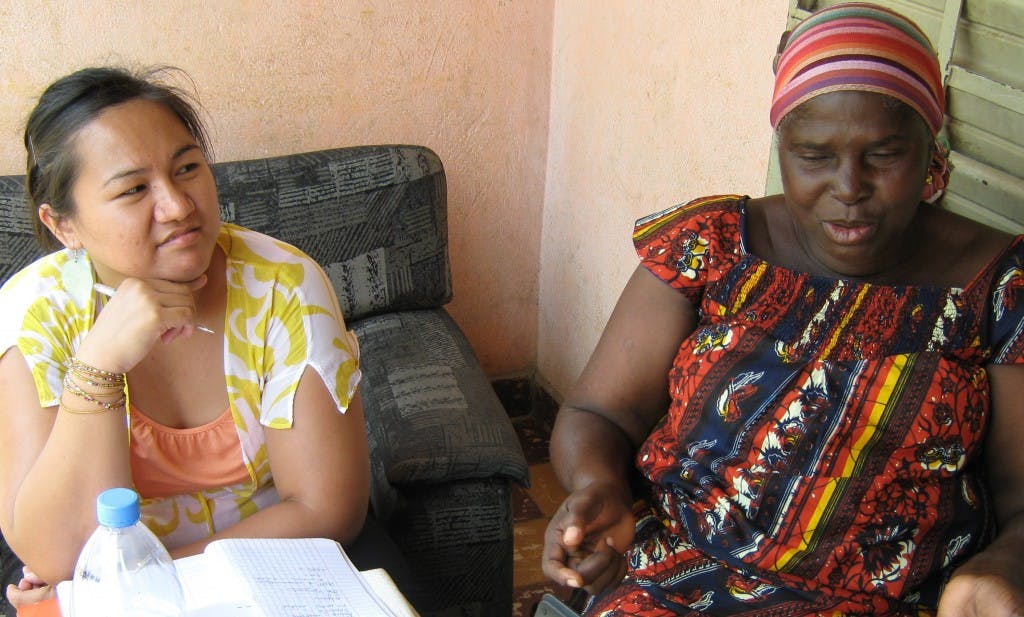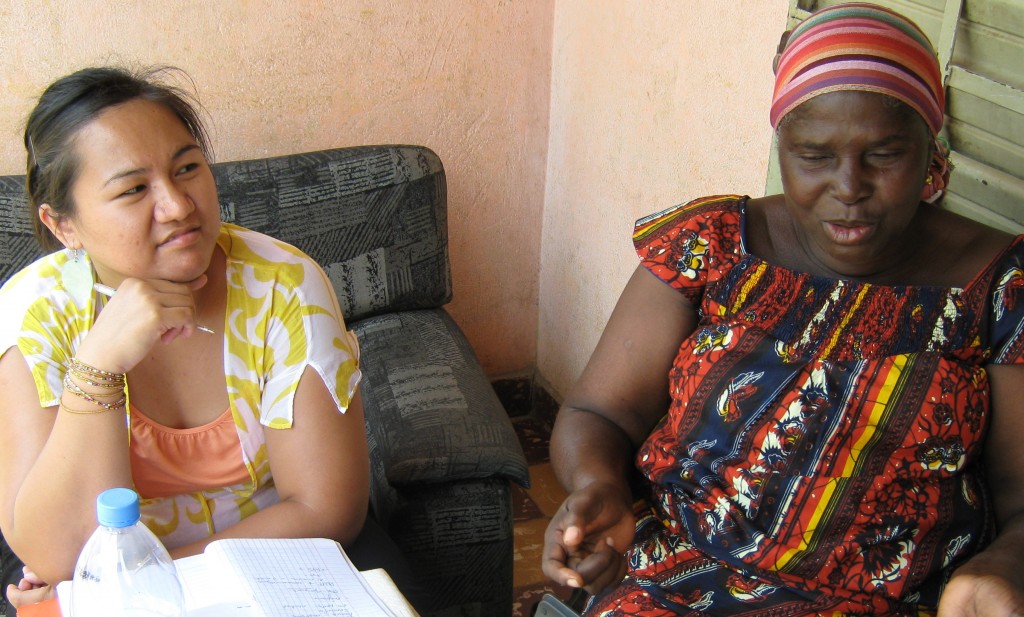Women as Peacebuilders in a Patriarchal Society
Apr 19, 2021
First story


In 1995, one year after the genocide in Rwanda and the rape camps of Bosnia, women delegates from all parts of the world gathered in Beijing for the Fourth World Conference on Women and wrote up a declaration to ensure the participation of women in decision-making and peace processes of their countries. Five years later, the United Nations Security Council adopted Resolution 1325, which addressed the impact of war on women and their contribution to conflict resolution and lasting peace.
Last summer, I was working as an evaluation and monitoring intern in Cote d’Ivoire for the conflict transformation NGO Search for Common ground. I spent some time in the town of Bouake, a former rebel stronghold, and examined how a group of ordinary women living there is interpreting the principles of Resolution 1325 while at the same time still struggling to free themselves from their relegated place as second-class citizens in a traditionally patriarchal society. These women have crossed ethnic and political divides in working together as a group to initiate community development and reconciliation through the improvement of girls’ education through a literacy campaign, the development of revenue-generating activities as a means to combat poverty, and the advancement of women’s role in the decision-making process in politics through workshops and dialogues.
Adopted in October 2000, Resolution 1325 encourages the active involvement of women across the globe as conflict resolvers, peacekeepers and peace builders. Women have suffered much throughout the Ivorian civil war, as they do in wars across Africa and around the world. Resolution 1325 recognizes, however, the potential of women leaders to transform from victims to advocates, playing an active role in the peace process. Cote d’Ivoire is still in a precarious situation even after the Ouagadogou Peace Accord was signed on March 15, 2007. And this is the time, more than ever, for women to implement themselves in the peace building process of their country following in the footsteps of women in neighboring countries Liberia and Sierra Leone who became leaders and peacemakers in their communities.
Swanee Hunt and Cristina Rosa (2001) analyzed that women have “a huge investment in the stability of their communities” given their roles as family nurturers. Moreover, as Sanam Naraghi Anderlini (2007) wrote, women are committed in the peace process because “it is their own lives; the political is deeply personal.” Women have no exit strategy.
These ordinary women of Cote d’Ivoire join their sisters from places such as Palestine, Iraq, Sudan, Somalia, Liberia and elsewhere in taking action against the brutality of war. While it is true that war disrupts the lives of both men and women, some men find opportunities in becoming leaders of armed organizations, smuggling operations or provisional governments. As for the women, they are the ones who walk out into the crossfire of bullets because they are obligated to feed their children while their husbands, brothers and fathers are preoccupied on the battlefields. There comes a point when the presence of war is no longer an option and women are compelled to seek the absence of violence. This is when they must step out of their traditional gender roles and become peacemakers.
Social studies have shown that women are effective peacemakers as demonstrated by successful women-lead peace movements in Northern Ireland, West Africa, Israel and Palestine. Backed by the United Nations Security Council Resolution 1325 in 2000 and the Platform for Action (PFA) created at the Beijing Conference in 1995, women across the globe are now mobilized more than ever to involve themselves in the peacemaking process.
Yet, most of the time, international non-governmental organizations, foreign academics, politicians, or influential feminists receive more recognition in their work towards the global empowerment and inclusion of women than the efforts being made by women on the ground. There needs to be a brighter spotlight on the women peacemakers at a community level; the actual people experiencing and living these ideologies and tenets created by elites in the field of development.
Furthermore, we also have to examine if men are actually embracing the new role of women as community leaders. Because the reality is that though the women in Cote d’Ivoire may be motivated to be involved in their country’s peace process, in this traditionally patriarchal post-conflict nation, women are still struggling to rise from their relegated status as second-class citizens. Certain societies still uphold traditional gender roles where women are not truly emancipated. In most cases, they are still considered second-class citizens whose role is relegated to the household and nowhere else.




